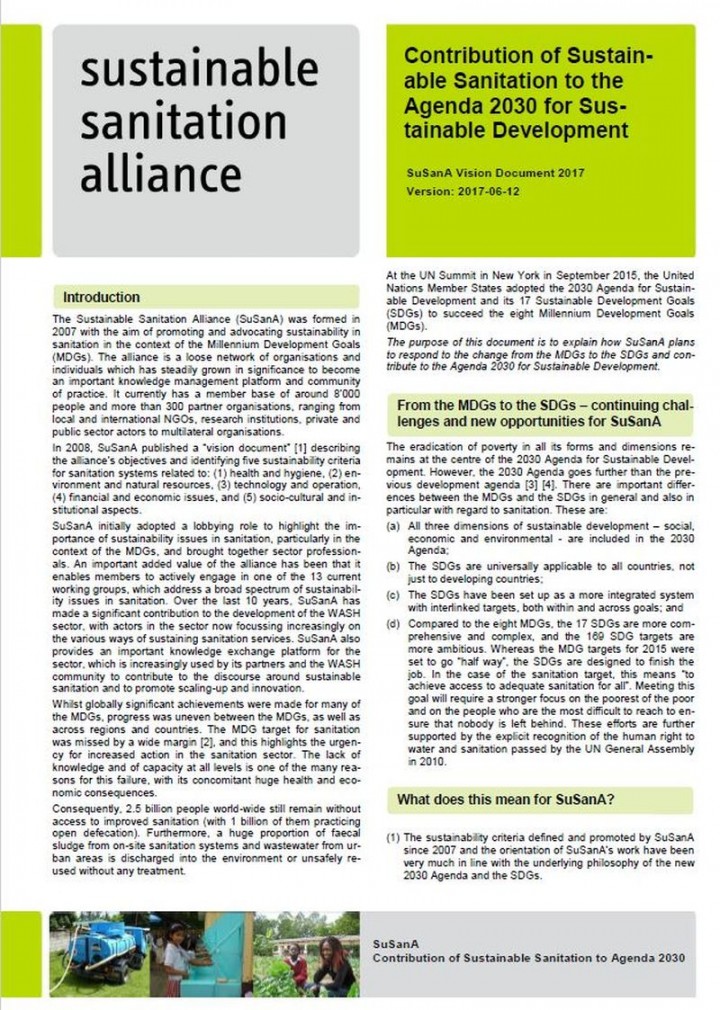SuSanA Vision Document 2017 Contribution of sustainable sanitation to the Agenda 2030 for sustainable development SuSanA (2017)
The Sustainable Sanitation Alliance (SuSanA) was formed in 2007 with the aim of promoting and lobbying for sustainability in sanitation in the context of the Millennium Development Goals. Over the last 10 years SuSanA has made a significant contribution to sector development, with sector actors now focussing increasingly on the sustainability of sanitation services in a variety of ways.
Whilst globally significant achievements were made for many of the MDGs, progress was uneven between the MDGs and across regions and countries. The MDG target for sanitation was the one missed by the widest margin, highlighting the urgency for increased action in the sanitation sector. The lack of knowledge and capacities at all levels was one of the many reasons for this failure with huge health and economic consequences. Consequently, 2.5 billion people world-wide still remain without access to improved sanitation (with 1 billion of them practicing open defecation) and a huge proportion of faecal sludge from on-site sanitation systems and of wastewater from urban areas is discharged to the environment or reused without any treatment.
At the UN Summit in New York in September 2015, the United Nations Member States adopted the 2030 Agenda for Sustainable Development and its 17 Sustainable Development Goals (SDGs) to succeed the eight Millennium Development Goals (MDGs).
The purpose of this document is to explain how SuSanA plans to respond to the change from the MDGs to the SDGs and contribute to the Agenda 2030 for Sustainable Development.
External Website(s)
Sustainable sanitation and the SDGs: interlinkages and opportunities
Bibliographic information
SuSanA (2017). SuSanA Vision Document 2017 Contribution of sustainable sanitation to the Agenda 2030 for sustainable development SuSanA, Eschborn, Germany
Filter / Tags
Publications by SuSanAPublications by SuSanAFactsheets and policy briefsPosters, brochures and flyersEnglish
External links
Sustainable sanitation and the SDGs: interlinkages and opportunities
Downloads
Contribution of sustainable sanitation to the Agenda 2030 for sustainable development - SuSanA Vision Document 2017
Type: application/pdf
Size: 0.82 MB
figure 1_Sustainable sanitation interlinkages with the targets of SDG 6
Type: image/jpeg
Size: 0.12 MB
figure 2_Sustainable sanitation interlinkages across the other SDGs
Type: application/pdf
Size: 0.15 MB

